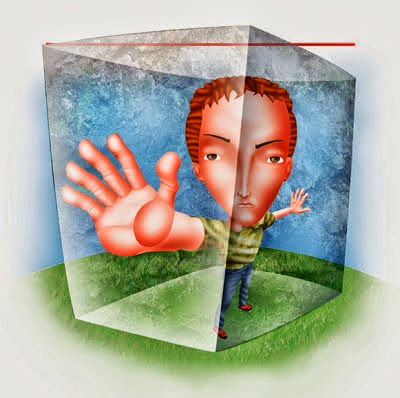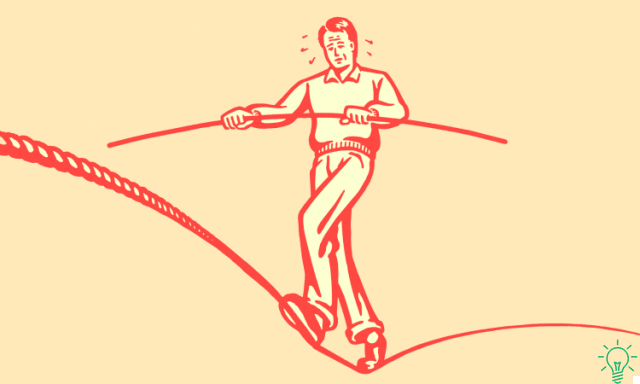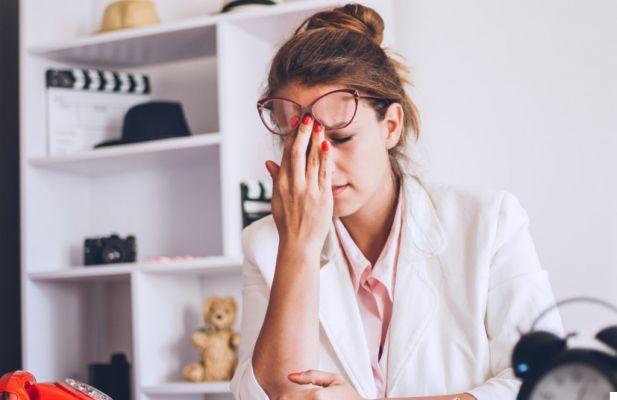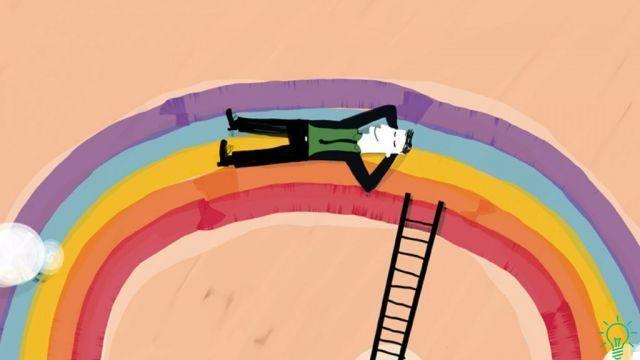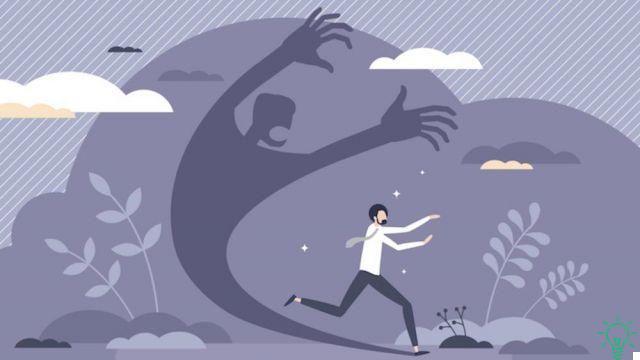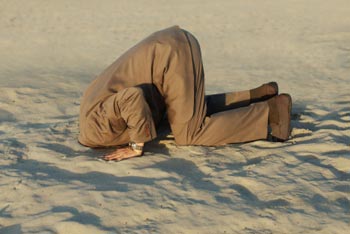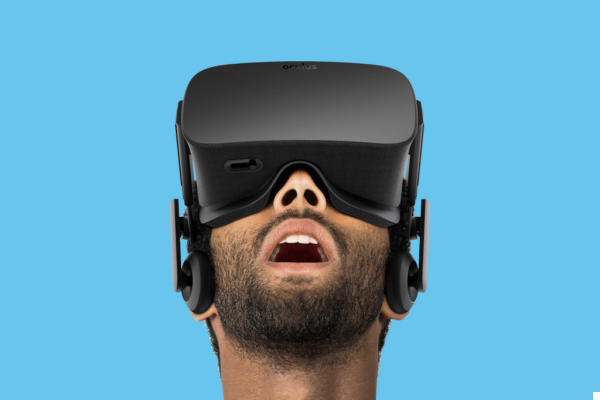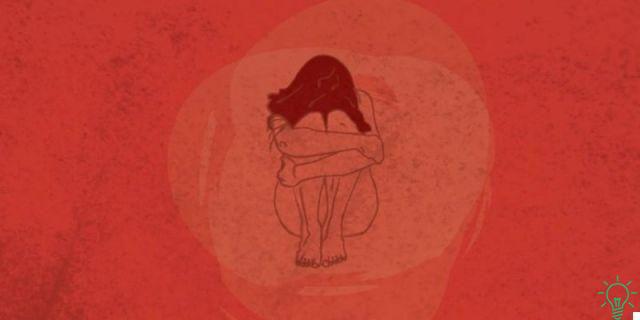
Anxiety attacks, better known in psychology as panic attacks, affect around 3% of the population, although the incidence is estimated to be even higher as many people do not seek medical help right away and are not diagnosed. .
The first anxiety attack can occur at any time and at any age, but symptoms usually appear in adolescence or adulthood and then subside in later life. This disorder is much more common in women than in men and especially in developed countries.
How do panic attacks present themselves?
Once you have had your first panic attack, the experience is likely to repeat itself. When the person is exposed again to a situation similar to the one that triggered the first anxiety crisis, he will experience what is known as anticipatory anxiety, as he will relive the symptoms of the previous panic attack in his mind.
In these cases, a self-monitoring mechanism is activated which increases the voltage level. This creates a vicious circle of fear and tension that fuels anxiety and triggers further panic attacks that are more intense and difficult to control.
The good news is that treatment for anxiety attacks is often very effective: between 70 and 90% of people who undergo therapy are able to control their symptoms. But it is important to remember that the sooner we undergo the therapy, the shorter it will be and the better results we will get. Therefore it is very important to learn to recognize the symptoms of panic attacks.
Symptoms of panic attacks
To diagnose a panic attack, fear needs to appear intensely and reach its peak within minutes. During the episode the person experiences many of the following physical symptoms:
- Profuse sweating
- Shaking or shaking
- Feeling of suffocation or difficulty in breathing
- Chest tightness
- Palpitations and increased heart rate
– Nausea
- Dizziness, loss of balance and / or fainting
- Tingling or numbness in the extremities
- Chills or hot flashes
The anxiety crisis is also accompanied by psychological symptoms, the most common are:
- Fear of losing control or of "going crazy"
- Concerns about the possibility of having another panic attack or its consequences
- Fear of dying, especially since symptoms are confused with those of a heart attack
- Feeling of unreality or depersonalization; for example, to be separated from the body
Anxiety attacks usually last only a few minutes, but in some cases they can persist longer. In fact, often the vegetative symptoms experienced by the person, as well as the fear, grow over time.
How to distinguish a panic attack from a heart attack?
Most of the symptoms of an anxiety attack are similar to those of heart attack, since they are autonomic responses, so many people are even more afraid thinking that they are about to die. This is because during these episodes our body reacts by producing the "stress hormones", responsible for generating all these symptoms.
However, panic attacks are almost always preceded by situations of enormous stress, such as the loss of a loved one, a stressful work project, or a family conflict. In many cases, the person also reports experiencing brief moments of nausea, dizziness, difficulty breathing, and palpitations prior to the panic attack.
Another key factor in differentiation is time. In the anxiety crisis, symptoms usually start suddenly and peak during the first 10 minutes, then subside. In heart attack, the pain usually lasts a few minutes and can then go away and return. But if it is the first episode, it is best to consult a doctor immediately. This will help determine if it is a heart attack or an anxiety attack.
In fact, it should not be forgotten that a study conducted at Massachusetts General Hospital showed that menopausal women who had had a panic attack in the past six months were also four times more likely to suffer from a heart attack and three times more likely to have a heart attack. a stroke during the next five years.
The causes of panic attacks
As with many other psychological disorders, the causes of panic attacks are multifactorial, which means that biological, psychological and social factors are combined with each other.
- Genetics. Twin studies have shown that it is possible that this disorder has a genetic basis, with a 30-40% probability of transmission. A Pompeu Fabra University study found that people with this disorder have a dysregulation in the NTRK3 gene, responsible for encoding a protein essential for brain formation, neuron survival, and neural connections. That gene could affect how fear memories are encoded in the brain, causing it to overreact. However, anxiety crises are not due to the alteration of a single gene, other genes have also been identified.
- Brain abnormalities. People with anxiety attacks have been seen to experience excessive stimulation in a region of the brain called the "amygdala", which is involved in the "fight or flight" response. An imbalance in some neurotransmitters, responsible for the transmission of information in the brain, was also found. In fact, a study conducted at the University of Iowa found that people suffering from panic attacks may have problems with their brain pH, which plays an essential role in responses related to fear and anxiety.
- Environment. Stressful events seem to contribute to panic attacks, such as in the case of a divorce, an accident or the death of someone we love. It was also seen that these people had more often experienced traumatic experiences in their lives, such as having been victims of violence, and this may have left a footprint in their brain that predisposes them to suffer panic attacks.
- Psychology. Not having adequate tools to deal with adversity increases the risk of having anxiety attacks. The tendency to have recurring negative thoughts also makes the person more vulnerable. It has been observed that anxious and neurotic people are more likely to suffer from a panic attack, as are those who have a history marked by episodes of fear.
The consequences of anxiety crises
At first, the reaction of a person suffering from a panic attack is to flee from where he is, especially from crowded environments. The problem is that the unpredictability of panic attacks causes the person to be increasingly afraid. Thus the fear of fear is established and the game is done, the person begins to avoid public places or all those situations in which he does not feel comfortable or safe.
As a result, the person lives in a state of permanent despair, waiting for the next anxiety crisis. To avoid it, he barricades himself in a comfort zone that becomes smaller and smaller, because his interpersonal relationships and his quality of life are particularly affected. Add to this the fact that people with anxiety attacks often go from doctor to doctor over the years, waiting for a diagnosis, and this causes them distress and mental fatigue.
A study conducted at Keio University's school of medicine revealed that people with panic attacks are also more likely to develop addiction to benzodiazepines. The problem is that they depend on it due to the fear that the symptoms will reappear if they stop taking the drug. In fact, the greater the severity of the disorder, the more common and the greater the psychological dependence of benzodiazepines.
What is the best treatment for panic attacks?
A study conducted at the Technical University of Dresden analyzed the effectiveness of Acceptance and Commitment Therapy (ACT) in 43 people who suffered from anxiety attacks and who had not responded to previous treatments, including medications , the cognitive approach and exposure therapy. These individuals improved significantly after only four weeks and the improvement was maintained for six consecutive months.
It has also been seen that tools and techniques that focus on the body are particularly useful in treating the anxiety crisis. A study conducted at the Charité - University Medicine of Berlin found that regular aerobic exercise reduces anxiety, so it is the ideal complement to cognitive-behavioral therapy, which is likely due to the fact that it affects the body's response to neuroendocrine level.
Breathing exercises also help relieve the symptoms of the anxiety crisis, as the person feels that they are in control again, so it is advisable to practice them as soon as you experience the first symptoms, before reaching the point of no return. Other methods, such as mindfulness meditation and rational-emotional therapy, are also helpful in treating panic attacks.






